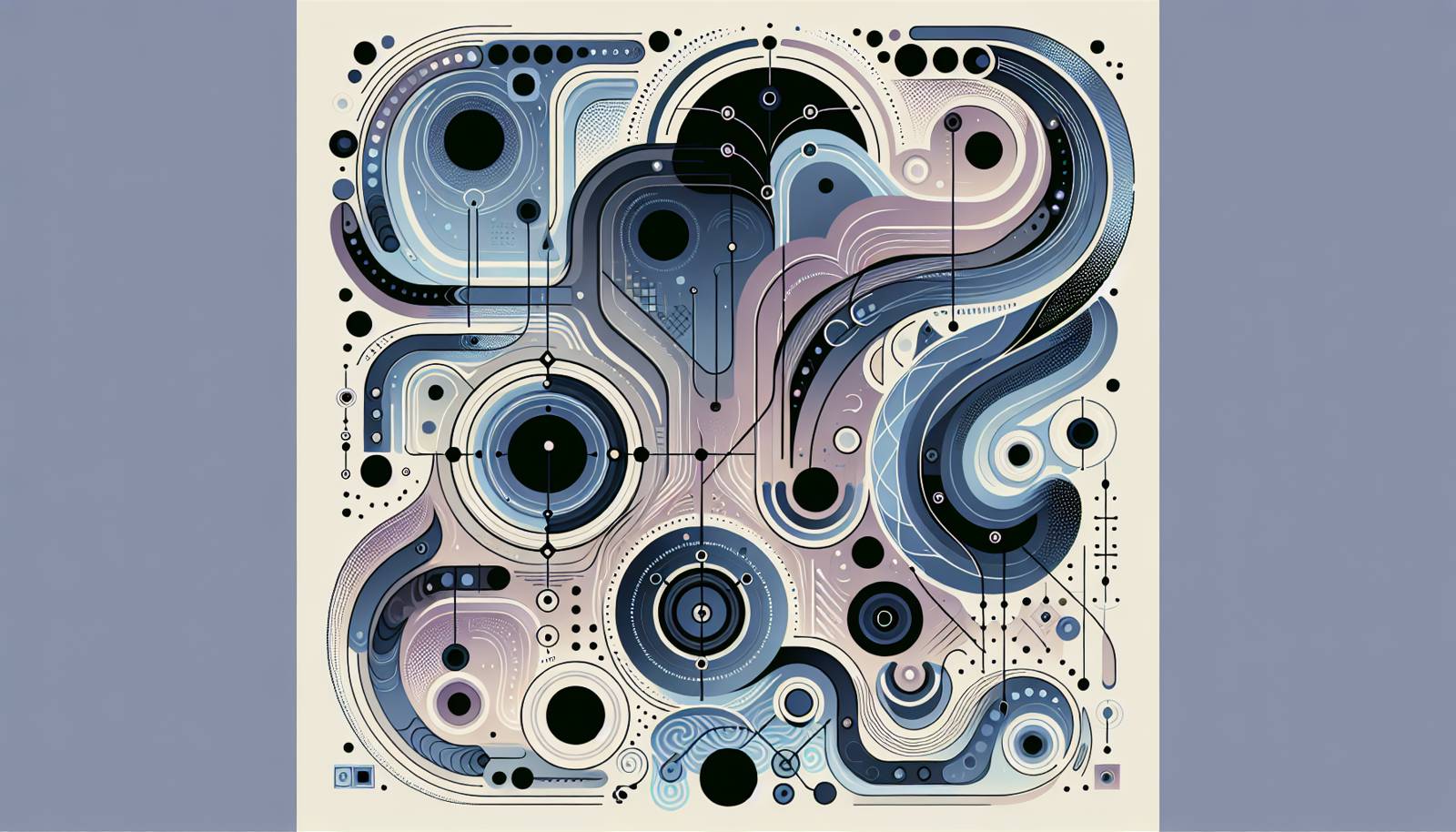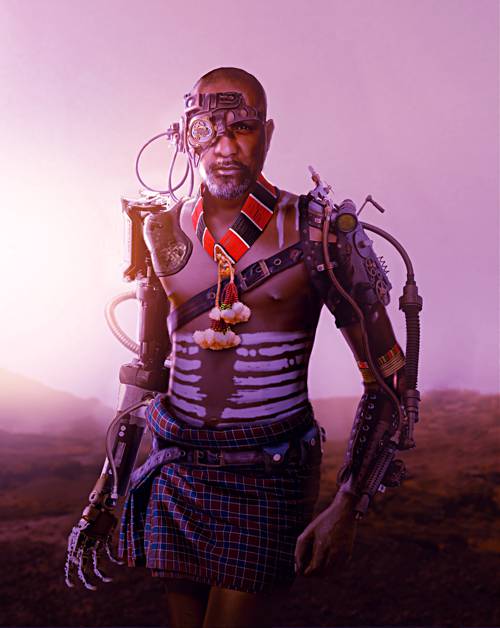
FAQ About The Influence of Afrofuturism in Modern Pop Culture

What is Afrofuturism?
Afrofuturism is a cultural movement that combines elements of science fiction, fantasy, and historical fiction with the rich traditions and cultures of the African diaspora. It reimagines the past and envisions a technologically advanced future through the lens of black identity and culture. Afrofuturism spans various artistic disciplines, including literature, music, and visual arts, offering new ways to explore and express narratives within the black community.

How did Afrofuturism originate?
Afrofuturism can trace its origins back to the mid-20th century, with early influences found in the works of authors like Sun Ra and Octavia Butler, who explored futuristic concepts through the perspective of black culture. The term itself was popularized in the 1990s by Mark Dery in his essay "Black to the Future," where he examined the intersection of African diaspora and technology.

Who are some prominent figures in Afrofuturism?
Prominent figures in Afrofuturism include musicians like Sun Ra and George Clinton, who infused their music with science fiction themes. In literature, authors like Octavia Butler, Samuel R. Delany, and Nnedi Okorafor have made significant contributions. Visual artists like Jean-Michel Basquiat and filmmakers such as Ryan Coogler, known for the movie "Black Panther," also play crucial roles in advancing Afrofuturist thought.

How does Afrofuturism influence modern music?
Afrofuturism has a profound impact on modern music, particularly in genres like hip-hop, R&B, and electronic music. Artists such as Janelle Monáe, Erykah Badu, and Flying Lotus incorporate Afrofuturistic themes into their music through futuristic aesthetics, technology-inspired sounds, and narratives that explore identity and cultural heritage. These artists use Afrofuturism to challenge stereotypes and offer alternative visions of black futures.

What role does technology play in Afrofuturism?
Technology plays a central role in Afrofuturism by providing the tools and thematic content to explore futuristic possibilities and alternate realities. It allows artists to create complex narratives where African culture and technological advancement coexist. This dynamic often serves as a framework to address contemporary social issues, explore identity, and reimagine a world where black people not only exist but thrive in technologically advanced societies.

How does Afrofuturism influence visual arts?
Afrofuturism significantly influences visual arts by incorporating themes of space travel, digital landscapes, and African iconography to challenge and redefine perceptions of black identity. Artists employ vibrant colors, intricate patterns, and speculative themes to bridge the gap between African cultural history and future possibilities. This visual representation aids in articulating complex ideas about race, identity, and belonging in a futuristic context.

What is the connection between Afrofuturism and literature?
Afrofuturism and literature are deeply intertwined, with numerous authors utilizing the genre to explore complex narratives around race, identity, and the future. Through science fiction and fantasy, Afrofuturist literature addresses themes of alienation, empowerment, and reinvention. The works of Octavia Butler, N.K. Jemisin, and Nnedi Okorafor illustrate how literature is a medium for Afrofuturist expression, offering radical reimaginings of black experiences and futures.

How has Afrofuturism shaped film and cinema?
Afrofuturism has made a significant mark on film and cinema, offering fresh narratives and visual aesthetics that celebrate black culture and identity. Movies like "Black Panther" have brought Afrofuturistic ideas to mainstream audiences, showcasing technologically advanced African civilizations and cultures. This movement in cinema challenges traditional portrayals of black characters and encourages diversity and inclusivity in storytelling.

What impact does Afrofuturism have on black identity?
Afrofuturism profoundly impacts black identity by providing platforms for representation and exploration of culture within futuristic scenarios. It empowers individuals to envision worlds where black people are central to global narratives and technological advancements. By blending cultural heritage with future possibilities, Afrofuturism creates hopeful and inspiring visions of black identity that challenge real-world struggles and stereotypes.

How does Afrofuturism address historical narratives?
Afrofuturism addresses historical narratives by reimagining and reclaiming elements of black history through a futuristic and speculative lens. It challenges historical erasure and stereotypes by proposing alternative histories where African diasporic stories are central. This approach also provides opportunities to discuss the impact of history on current identities and futures, offering frameworks for healing and empowering black communities.

Is Afrofuturism limited to African cultures?
While Afrofuturism prominently features African cultures and the African diaspora, it is not limited to them. It is a global movement that explores various interactions and influences among cultures, particularly how they intersect with technology and speculative narratives. It acknowledges the diversity within black experiences and incorporates elements from different cultures to enrich its exploration of future possibilities.

Can you give an example of Afrofuturism in literature?
An excellent example of Afrofuturism in literature is the work of Octavia Butler, particularly her novel "Kindred." Although it primarily engages with historical themes, it introduces science fiction elements by employing time travel to explore the intersection of past and present narratives of race and identity. Her works provide profound insight into Afrofuturist thought and its application in literature.

What is the difference between Afrofuturism and Africanfuturism?
Afrofuturism and Africanfuturism are converging, yet distinct concepts. Afrofuturism is a broader movement that includes the African diaspora's interaction with futuristic narratives and technology. Africanfuturism, a term popularized by author Nnedi Okorafor, focuses specifically on Africa and offers a science fiction narrative centered on African experiences, independent of Western influences. Both movements aim to reshape perceptions of black futures but vary in their primary focus and geographical narratives.

How does Afrofuturism influence fashion?
In fashion, Afrofuturism influences design through bold, innovative aesthetics that blend traditional African elements with futuristic concepts. Designers incorporate textiles, patterns, and silhouettes inspired by both African heritage and science fiction, creating garments that push boundaries and challenge mainstream fashion norms. This fusion allows for new expressions of identity and culture, resonating with themes of empowerment and imagination.

Is Afrofuturism only a modern movement?
Although Afrofuturism is recognized as a contemporary movement, its roots can be traced back to the mid-20th century and even earlier if considering foundational influences from African folklore and mythology. It has evolved significantly over time, gaining prominence in modern times as creatives across disciplines seek to explore and represent black futures and narratives in nuanced ways.

Can Afrofuturism intersect with other cultural movements?
Yes, Afrofuturism frequently intersects with other cultural movements, such as the Black Arts Movement, feminism, and environmentalism. These intersections explore common themes like empowerment, representation, and social justice. By engaging with various cultural narratives, Afrofuturism expands its reach and influence, creating rich dialogues between different movements that contribute to a more inclusive understanding of futuristic visions.

What are some common themes in Afrofuturist works?
Common themes in Afrofuturist works include the exploration of identity, displacement, and empowerment, often within a speculative and futuristic context. These works frequently address issues like colonialism, racism, and cultural heritage. They reimagine technological advancement alongside African cultures and often depict worlds where black excellence is celebrated and technology is used as a tool for liberation and expression.

How has "Black Panther" contributed to the Afrofuturism movement?
The 2018 film "Black Panther" significantly contributed to the Afrofuturism movement by depicting the fictional African nation of Wakanda—a technologically advanced society that remains culturally rich. The film integrates Afrofuturist elements through its narrative, aesthetics, and representation, bringing these ideas to mainstream awareness and sparking widespread discussions about race, technology, and culturally driven futures.

Are there any Afrofuturism festivals or events?
Yes, numerous festivals and events worldwide celebrate Afrofuturism. These gatherings often feature music, art exhibitions, film screenings, and panel discussions that explore the themes and impact of Afrofuturism. The Afrofuturist Affair and Black Speculative Arts Movement are notable examples, providing platforms for artists and enthusiasts to engage with and promote Afrofuturistic culture and ideas.

What impact does Afrofuturism have on education?
Afrofuturism impacts education by offering new frameworks for exploring history, science, and technology through a culturally enriched lens. It encourages inclusive curriculums that incorporate diverse narratives and inspires critical thinking about future societies and identities. Educational institutions may integrate Afrofuturism into courses on literature, history, and cultural studies, fostering deeper understanding and appreciation of black cultures and futuristic possibilities.
